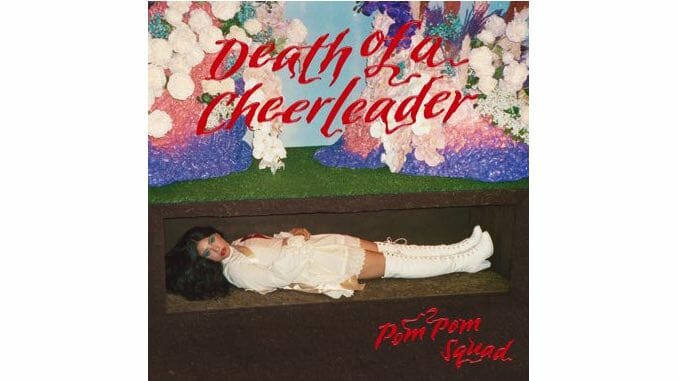Pom Pom Squad Create a Cinematic Masterpiece with Death of a Cheerleader
The record is rife with references, but the four-piece speak with their own voice

Escapism through movies, music and other media is hardly a new concept, but it became all the more important over the past year. No longer was flicking on a film just a way to occupy an evening and take your mind off whatever dullness lay ahead in your week—suddenly, it was also a way to dissociate from the mind-numbing grief of the pandemic.
Mia Berrin of Pom Pom Squad has long been an avid explorer of pop culture, though as a person of color and a queer woman, neither facets of her identity have historically been given much attention in media. She dealt with this lack of representation resourcefully, finding snippets that resonated with her. She explains in a press release, “I absorbed everything I could and tried to make a collage that could incorporate every piece of me.” Now, with bandmates Shelby Keller (drums), Mari Alé Figeman (bass) and Alex Mercuri (guitar), Berrin is ensuring that present and future generations won’t have to live on meager scraps. Death of a Cheerleader synthesizes Berrin’s various influences—aesthetic, musical, cinematic—but ends up as a creature entirely its own, telling Berrin’s story in a way that’s sure to hit home with many who struggle to see themselves in whitewashed Hollywood releases. The album is well-realized conceptually and brilliantly, viscerally executed.
References abound in Death of a Cheerleader, but the record is so original and stirring in its own right that such allusions bolster rather than overshadow the music. “Second That,” which thrums with Puberty 2-era Mitski moodiness, is named for the Smokey Robinson song “I Second That Emotion.” One of the lines in “Crying”—a highlight on an album of memorable tracks—subtly nods to Gilbert O’Sullivan’s contribution to The Virgin Suicides’ soundtrack: “Naturally, I’m alone again.” References to the beloved, ethereal Sofia Coppola film certainly don’t end there. The entirety of “Lux” is devoted to the eponymous character, from her consumption of peach schnapps “in a crowded high school dance” to her tragic end from carbon monoxide poisoning: “Meet me tonight in the garage.” “Head Cheerleader” is just as explicitly queer as the movie it’s tipping its hat to—But I’m A Cheerleader.
-

-

-

-

-

-

-

-

-

-

-

-

-

-

-

-

-

-

-

-

-

-

-

-

-

-

-

-

-

-

-

-

-

-

-

-

-

-

-

-








































